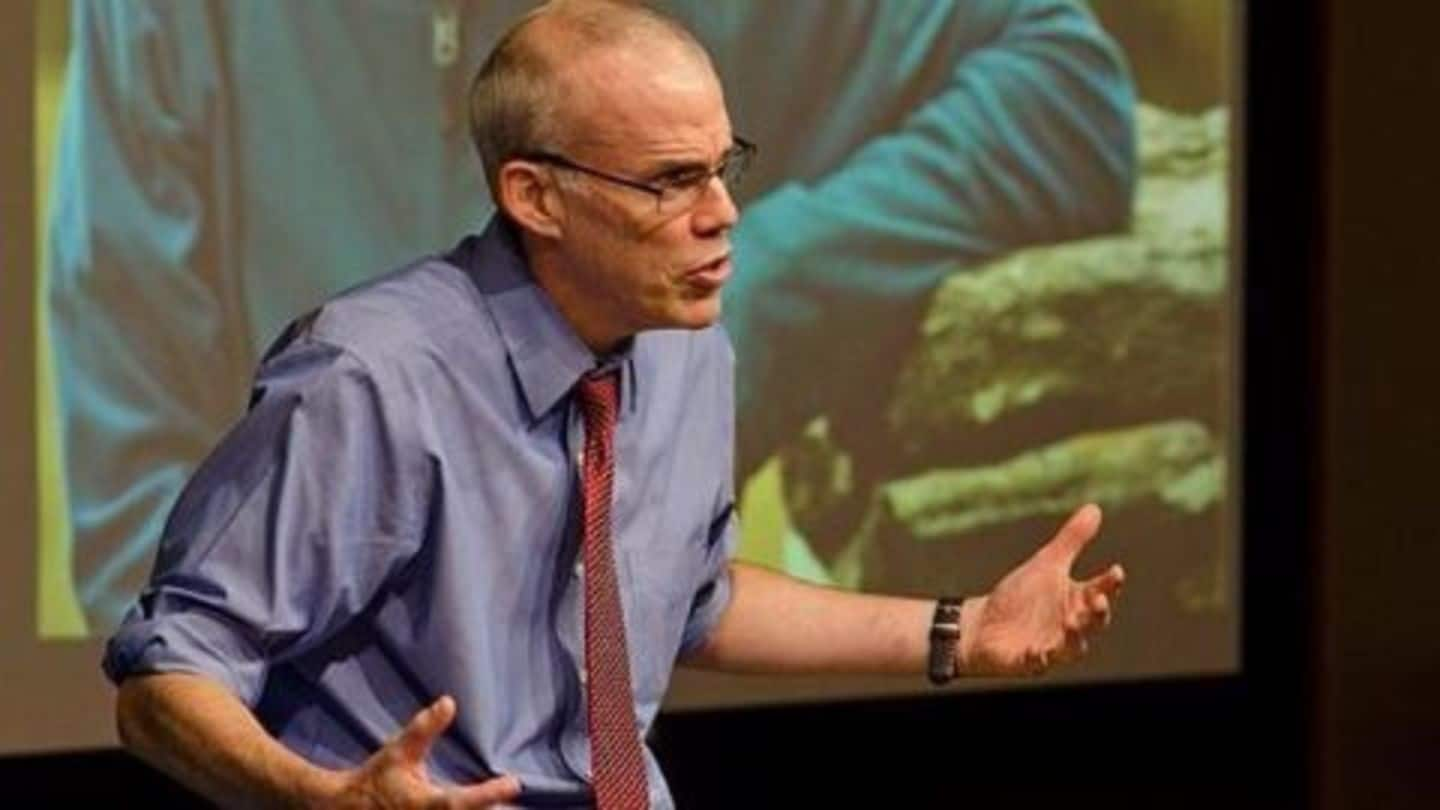
Environmentalist McKibben says Climate Change is WW-III
What's the story
Environmental activist Bill McKibben, in his article on climate change published in 'The New Republic', wrote that the world was under attack from climate change. Calling on the next US President to declare war on climate change he said, "World War III is truly underway. And we are losing." He added that to fight this threat WW II-type force mobilization was required.
Environmentalist profile
Who is Bill McKibben?
Bill McKibben is an environmental activist and an author who founded 350.org, an organization that works for the grassroots climate change movement. In 2014, he was awarded what is referred to as alternative Nobel prize, the Right Livelihood Prize. The former staff writer of the New Yorker, also won the Gandhi prize and the Thomas Merton prize.
Do you know?
New species named in McKibben's name?
In 2014, biologists honored Mckibben by naming a new species of woodland gnat as Megophthalmidia mckibbeni.
350.org
Work of McKibben's 350.org
350.org gets its name from 350 PPM (parts per million), which is the safe level for CO2 in atmosphere. The group works in most countries in the world on issues like "stopping the keystone XL pipeline in the US, fighting coal power plants in India, and divesting public institutions from fossil fuels". 350.org aims to develop 'people-centric solutions' for the climate crisis.
18 Aug 2016
Recent effects of Climate Change as mentioned by McKibben
McKibben mentioned the decreasing Arctic ice cover which is close to 22,000 sq. miles a week. Reportedly, "the area shrunk approximately by half in 30 years". He highlighted the wide spread bleaching of coral reefs in Pacific Ocean, and global rise in temperatures. McKibben also attributed the recent events like firestorms in Canada, droughts in Southern Africa, Paris floods, Zika virus, to Climate Change.
Recommendation
What does McKibben recommend?
McKibben recommended that the climate change threat can be fought by entirely shifting global economies based on fossil fuels to renewable sources of power. To support this, he cited research from Stanford University which stated that it was possible to convert the entire United States energy-mix towards renewable energy, by 2050. The Stanford team he said, compiled similar plans for over 139 other countries.